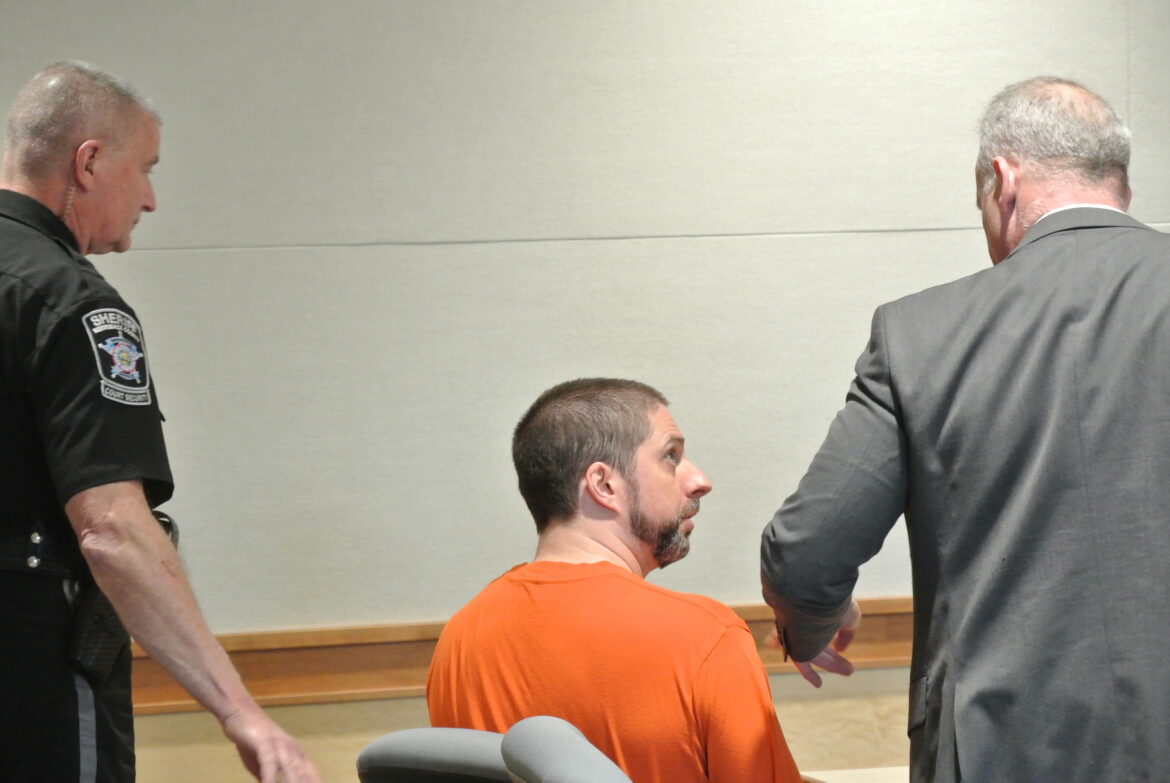By DAMIEN FISHER, InDepthNH.org
CONCORD — Prosecutors assigned to former corrections officer Matthew Millar’s second-degree murder case don’t want former Corrections Commissioner Helen Hanks answering questions about her destruction of evidence in the matter.
Assistant Attorney General Dan Jimenez argued Thursday that Millar’s defense team doesn’t need the suddenly ousted Hanks to sit for a sworn deposition ahead of the trial, despite what’s been discovered so far in the 5,000 pages of evidence Hanks previously, and likely illegally, withheld.
Questions like: Why did Hanks interview witnesses during the Attorney General’s investigation into Jason Rothe’s 2023 death as a patient inside the New Hampshire Prison for Men’s Secure Psychiatric Unit? Why did she destroy her notes from those interviews? Why did she hide the fact key witnesses recanted their allegations against Millar?
Jimenez told Merrimack Superior Court Judge Daniel St. Hilaire that the upcoming June trial isn’t about Hanks, but Rothe and Millar, who was a corrections officer and is accused of causing Rothe’s death.
“What this trial centers on is what happened in the dayroom on April 29, 2023 in the Secure Psychiatric Unit,” Jimenez said.
Hanks made herself part of the trial when it was learned in March she had withheld reams of evidence previously ordered to be handed over, including evidence that could potentially clear Millar. The trial had been scheduled to start in March, but was set back to June after the discovery violation was unearthed.
Millar is accused of pressing his knee into Rothe’s back for close to two minutes during a violent incident involving several corrections officers.
Now, weeks before the trial, defense attorney Jordan Strand said Hanks and DOC Personnel Director Fallon Reed need to explain their actions, such as Hanks destroying her notes and holding back information from disciplinary letters she issued to at least three witness-corrections officers.
Jimenez explained in a court filing Hanks claimed she always destroys her meeting notes due to her bad handwriting, an answer Strand finds less than convincing.
“She is the only one who can explain why this exculpatory information did not make the letters,” Strand said. “Blaming it on bad handwriting is not a particularly good excuse.”
Hanks and Reed interviewed corrections officers involved in Rothe’s death during meetings held in May and June of 2023, after she was informed that the criminal investigation was ongoing.
According to court records, Hanks asked the witnesses about Rothe’s death during the 2023 interviews, but later claimed the meetings were “performance evaluations” when discovered by Attorney General’s Office investigators. A DOC source tells InDepthNH.org performance evaluations generally don’t involve meeting with the Commissioner and the Personnel Director.
Hanks issued disciplinary letters to three of the officers she interviewed, officers who are now witnesses in the murder trial. Strand said Thursday that Hanks described the content of the disciplinary letters as definitive records of the interviews.
However, Reed took her own notes of the meetings which she did not destroy. The transcripts of Reed’s notes include more details and different information than the disciplinary letters, according to Strand. Reed’s notes include one witness “walking back” her prior statement about Millar kneeling on Rothe’s back, and another claiming that the accusation about Millar kneeling is a lie.
“Those appear nowhere in the letters Ms. Hanks drafted,” Strand said.
St. Hilaire does not have much time to issue an order on Millar’s motion before the trial starts in mid-June. He’s already warned the state he would consider dismissing Millar’s charges if DOC did not comply with his previous discovery orders and stop withholding evidence.
Rothe was committed to New Hampshire Hospital, the state’s psychiatric hospital, in 2019 when he was determined to be incapable of taking care of himself, according to the police affidavit filed in the case. He suffered from schizo-affective disorder and bipolar disorder and also had a colostomy bag which collected stool after a self-inflicted injury, according to court records.
Rothe was moved to the SPU in 2022 when hospital officials deemed he was a serious risk to harm to himself and others. The SPU is home to violent patients from New Hampshire Hospital and the state’s prisons and county jails.
Those served in SPU include patients committed through the NH judicial system (in accordance with civil commitment statutes) due to mental illness and dangerousness, not guilty by reason of insanity, and those rare individuals committed under the state’s sexually violent predator law, and individuals who are developmentally disabled requiring intervention for extreme dangerousness, according to SPU’s website.
Though billed as a hospital, it is operated on the prison grounds as a prison and staffed with corrections officers as well as nurses.





